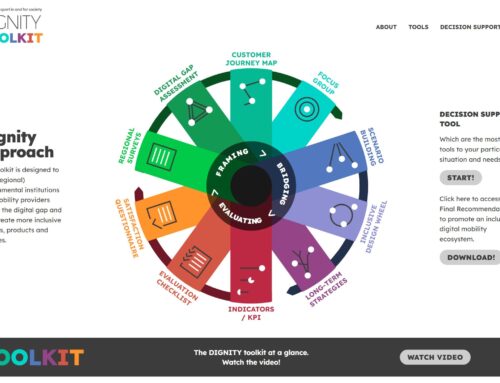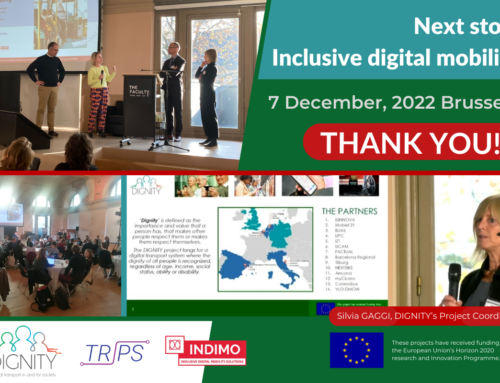For digital transport solutions to be truly inclusive, they need to be accessible to and usable by a wide range of people. To achieve this, it is important to understand what factors affect a person’s ability to use a digital interface. What might these be? DIGNITY’s partners at the University of Cambridge highlight a range of possible options, as shown in the diagram below.
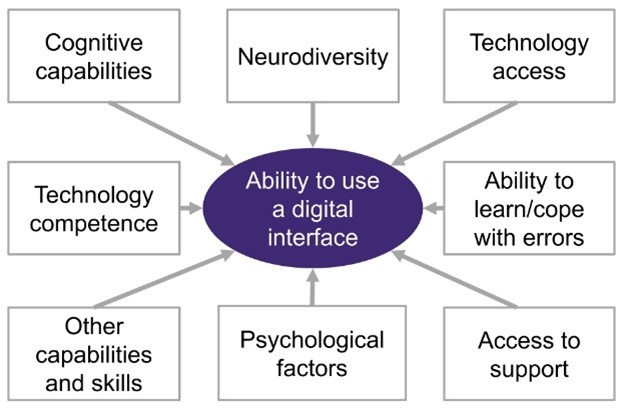
Key user characteristics that affect a person’s ability to use a digital interface. Taken from Goodman-Deane et al (2020).
It is important to recognise that a person’s ability to use a digital interface depends on much more than simply having access to the required technology.
DIGNITY is conducting a set of surveys to understand how key influencing factors vary across the population. The data we are collecting on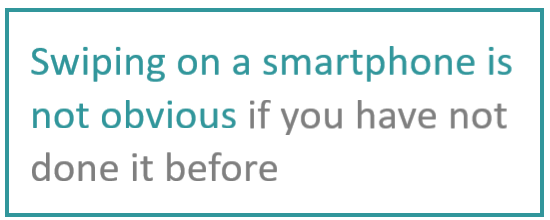 technology experience, competence, and attitude, as well as ability to recover from errors, will provide valuable insights into who is likely to find a digital interface difficult to use and why.
technology experience, competence, and attitude, as well as ability to recover from errors, will provide valuable insights into who is likely to find a digital interface difficult to use and why.
Firstly, competence with technology is crucial. This depends on a person’s experience with similar technologies and interfaces, and their resultant knowledge of commonly used symbols and interaction techniques. Even apparently simple gestures, such as swiping on a smartphone, are not obvious to someone who has not used that device before.
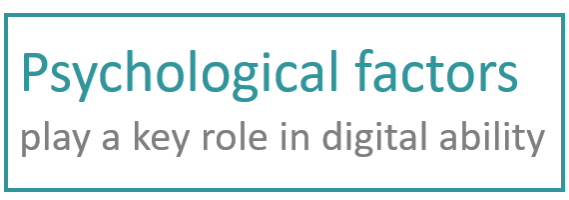 Other abilities and skills, such as the capacity to learn, the ability to cope with errors, and language skills, are also important. Psychological factors play a key role. If someone lacks confidence in using technology, they are more likely to get flustered or confused, and give up when they do not understand something. Conversely, if someone is willing to try out different things on an interface to see what happens, they are more likely to figure out how to use it.
Other abilities and skills, such as the capacity to learn, the ability to cope with errors, and language skills, are also important. Psychological factors play a key role. If someone lacks confidence in using technology, they are more likely to get flustered or confused, and give up when they do not understand something. Conversely, if someone is willing to try out different things on an interface to see what happens, they are more likely to figure out how to use it.



